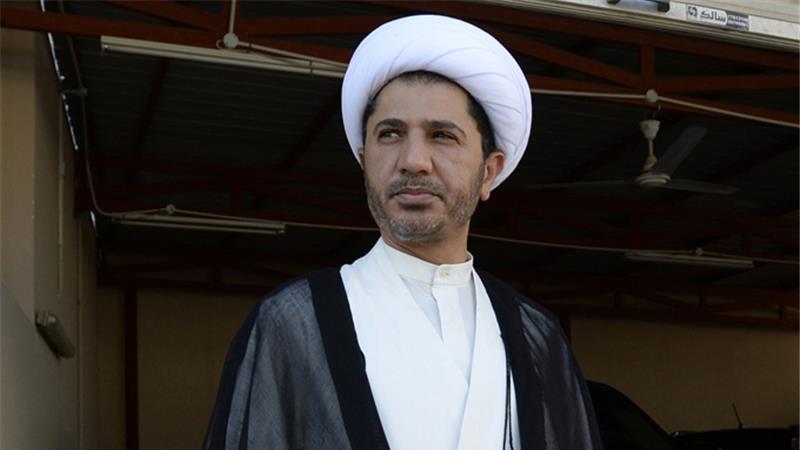On Monday 17 October 2016, Bahrain’s Court of Cassation ordered a retrial on the case of Sheikh Ali Salman. Sheikh Ali Salman is the former Secretary-General of the largest political opposition bloc in Bahrain, Al-Wefaq, which is now dissolved. The Government of Bahrain has convicted him for “inciting hatred” and “encouraging violent regime change” on charges related to a peaceful speech calling for political reforms he gave in 2014. The United Nations Working Group on Arbitrary Detention determines Sheikh Ali Salman has been arbitrarily detained and calls for his immediate release.
On 28 December 2014, Bahraini security forces arrested Sheikh Ali Salman just two days after his re-election as Al-Wefaq’s Secretary-General. On 16 June 2015, Bahrain’s Higher Criminal Court sentenced Sheikh Ali Salman to four years in prison on charges relating to “publicly inciting hatred, an act which disturbed public peace, inciting non-compliance with the law and insulting public institutions.” The court based the conviction on evidence found in Sheikh Ali Salman’s speeches. The judge refused the defense team’s request to present supporting evidence, including recordings of the very speeches for which he was prosecuted. On 30 May 2016, in a clear case of double jeopardy, the Bahraini Court of Appeal upheld the four-year imprisonment sentence, and further punished Sheikh Ali Salman for “attempting to overthrow the regime” – the charge of which the criminal court had previously acquitted him.
The targeting of Sheikh Ali Salman, who is a prominent Shia cleric, further exemplifies the increased repression aimed at the Shia majority population in Bahrain. This past summer, the Bahraini government escalated its suppression of the Shia population. On 20 June 2016, authorities arbitrarily revoked the citizenship of Sheikh Isa Qassim, one of the country’s most prominent Shia religious leaders. The government has related Sheikh Isa Qassim’s denaturalization to a Shia practice called khums, a religious obligation used to assist the community’s most vulnerable. Since June, Bahraini authorities have summoned a number of Shia clerics in relation to their exercise of freedom of expression and assembly. In response to the recent repression, five United Nations human rights experts issuing a statement urging the government to end the persecution of the Bahraini Shia populations.
The United States Department of State has repeatedly voiced its concerns regarding the arrest and imprisonment of Sheikh Ali Salman and has called on the Bahraini government to release him. Additionally, Sheikh Ali Salman’s case illustrates the Bahraini authorities’ repeated failure to comply with its international obligations under the International Covenant on Civil and Political Rights (ICCPR), which calls for the protection of peaceful expression. Bahraini officials should ensure Sheikh Ali Salman is given a fair trial. Imprisoning an individual for a peaceful speech is a disgrace to the international community’s understanding of human rights standards.





